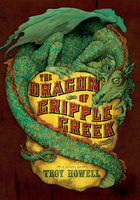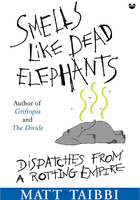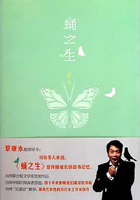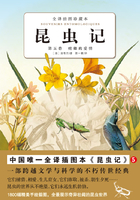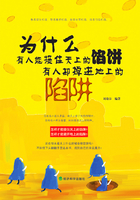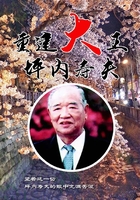A thief is someone who steals what is rightfully ours. This book is about the thieves we allow to rob us of the happiness that is our natural state. We don't need to seek happiness so much as we need to get out of its way. These same thieves rob us of the harmony we are capable of as a society.
Happiness is all the rage today. Books about happiness proliferate everywhere, it seems. The science of happiness has become big business, as well as the subject of scientific exploration. University studies seeking to discover, through clinical research, how happiness is engendered and maintained have become common at vaunted places like Harvard and the University of Michigan. I have written extensively about happiness, as well as lectured on it around the globe. In spite of all this attention, we live in a world awash in books and lectures on happiness, but unhappiness is all around us.
Is it possible that the very pursuit of happiness has within it the seeds of unhappiness? The idea of needing to seek happiness has, at its core, the belief that happiness and contentment are not our natural state, that somehow to find happiness we must go on a heroic quest to uncover that which will make us happy.
Even the label of being happy or unhappy can be a trap. By labeling ourselves as "unhappy," we are already sitting in judgment of our inner state. Some research has suggested that the act of assessing one's happiness on a consistent basis may actually lead to greater unhappiness, especially if we are feeling unhappy to begin with.[1]
happiness is not about happenings
The word happiness was chosen for this book with some trepidation. The word has many meanings to many different people. There are other words that could have been chosen, such as contentment, peace, virtue, fulfillment, meaning, harmony, and joy. Yet happiness appears to be the word of our time, the word that somehow in pop culture has come to symbolize our desire for a sense of rightness about life.
It is no accident that the English word happiness sounds an awful lot like happenings. The word happiness in most European languages, from Greek to English, originally was synonymous with the word lucky from the Middle English word hap (which meant "chance"). In other words, if you were fortunate enough to have good things happening to you, the result was the feeling of happiness.
In keeping with the origin of the word, most of us believe that happiness is directly related to happenings, even though we know it does not explain why some people appear to experience happiness regardless of what is happening in their lives, whereas others are chronically unhappy even with many good things happening around them.
The ancient Greeks had a slightly different notion of happiness. In many ways Aristotle began the conversation about happiness in the Western world when he identified it as the chief goal of a human life. The Greek word eudaimonia is more akin to the idea of human flourishing than the Middle English happiness. Though Aristotle granted that part of human flourishing came from external elements, such as health and wealth, he argued that happiness was more about living a life of virtue. He posited certain qualities of character that represented the more ideal state of a human, such as courage. The virtues were not so much moral qualities as they were ways of being that facilitate happiness. In other words, Aristotle introduced the idea that happiness was somehow related to an internal set of virtues or characteristics, which somehow filtered our experience.
Disconnecting happiness from happenings is critical to achieve lasting contentment. This is the happiness that each of us truly seeks-one that is not directly correlated with what is happening in our lives moment to moment but that has a robust lasting quality of its own regardless of outer circumstances.
happiness is our natural state
It is my contention that happiness is our natural state. But how do we define happiness? Happiness, contentment, a sense of well-being, the feeling that one's life has meaning and purpose-all are concepts most of us understand intuitively. We know it when we experience it, when there is a sense of things being well. When I use the word happiness, I mean it to be "a deep sense of rightness about one's life and a sense of inner contentment about oneself in the world." It is this very sense of the rightness of things that I argue is natural to us and is something that the thieves steal from us.
As was said on the first page of this book, one way to think about happiness is that we don't have to seek it so much as we need to get out of its way. We have been so trained to think that we have to seek, long for, and work for happiness that it's easy to forget that the contentment we seek is always there, waiting for us to access it. Nature is a great teacher in this regard, which is why so many of the wisdom and poetic traditions ask us to approach nature as a role model. Research consistently shows that when humans are surrounded by nature, especially trees and other plants, we are happier and less stressed. There is a reason for that. Nature appears to us to have the natural calm we seek. Most of nature appears to simply be. It reminds us that we also have that within us. Lao Tzu is purported to have said that nature does not hurry, yet everything is accomplished.
The idea that the inner experience of happiness is our natural state can be found throughout the spiritual traditions of East and West. Whether or not you believe in the factual truth of any or all of the great spiritual traditions, together they represent humanity's collective quest for happiness over many millennia. My intention here is not to support or promote any particular religious viewpoint but to show that this notion that we already have happiness is not new.
The Judeo-Christian-Islamic creation story illustrates this through the story of Adam and Eve in the Garden of Eden. Given the way humans have always seen nature as a teacher, it is not surprising that one of the oldest stories in the West about creation places the first humans happy and living in a garden.
The two first humans can do anything they want in the garden except eat the fruit from the tree of the knowledge of good and evil. Metaphorically, the tree represents the part of us that judges and toils rather than experiences life. Before eating from the tree, the first two humans simply enjoyed the garden. They were, in essence, living in paradise, connected to their natural happiness much like the trees and plants.
A snake entices them to eat from the tree, and immediately they feel ashamed and realize they are naked. They cover up. Rather than feel that they had all they needed, they suddenly felt they somehow needed something else to be happy. The divine creator finds them clothed and asks, "Who told you that you were naked?"
Rather than think of the physical act of being naked, the allegorical meaning is more like Who told you that there was something you needed? You are, after all, already in the Garden of Eden! Think about the image for a moment. In the West we use "the Garden of Eden" as a way of talking about a place where everything works. The initial thought of unhappiness, the sense that all is not just as it should be, does not come from any change in external circumstances but from a shift of internal perspective. The garden did not change, but the filter through which the garden is seen is what steals the natural sense of rightness.
The result of the act of eating the fruit of the tree is that humans are cursed to struggle from that point on. Sadly, many interpret this story as punishment when it is more about exile. Disconnected now from our true nature, which is to be happy, we lost the connection to our natural calm and, unlike the rest of nature, have been seeking happiness ever since.
In the Eastern tradition, yoga and meditation are used to quiet the mind to discover the inner calm that is already there. The original Sanskrit word for yoga means literally "to join" or "to unite." Unlike our modern idea of happiness, the word yoga, which is almost 5,000 years old, suggests not a seeking but a uniting with what is already within us. Many modern people think of yoga or even meditation as an arduous task to earn our way to calm rather than as a means to clear the mind so that one can rediscover the deep calm that is already our nature. Though suffering exists in the external world, the inner calm we seek is already within us. So when I say that happiness is naturally ours, that is what I mean.
A quote widely attributed to Rumi, a well-known thirteenth-century Persian poet, Islamic scholar, and Sufi mystic, says that the inspiration you seek is already within you. Be silent and listen. Again and again we see this idea that the experience of inner calm and happiness is already present.
We have glimpses of this inner calm not only in nature but in our own experiences, as well. The baby's natural smile is the most emblematic symbol of that inner state, the way the baby reaches out with curiosity to touch an object or explore the world without judgment.
The stillness of sleep in its most sublime moments is another image of the inner calm we already possess. Many in the Eastern tradition have compared the sense of oneness and calm we feel in sleep with our natural state of consciousness. Famous people like Shakespeare and D. H. Lawrence have extolled the virtues of sleep. As most occasional insomniacs know all too well, it is when we clear the mind and let sleep come, rather than seek it, that the peace of rest occurs. Happiness, like sleep, requires us to get out of its way. There is a reason we say, "sleeping like a baby"; somehow we know that the baby intuitively rests in the calm at the center of everything, a sleep soon disturbed by incessant seeking.
enter the thieves
But why use the metaphor of thieves to represent that which takes away our natural happiness and inner calm? A thief, by definition, is someone who takes away something that is already yours. In the case of happiness, the thieves are thought patterns and internal filters through which we see the world in a distorted way. They cloud our view of what is true and natural.
Most of the spiritual and wisdom traditions suggest the presence of distorted ways of seeing the world that must be avoided. In Buddhism there are the five hindrances: sensory desire, ill will, sloth, restlessness, and doubt. In the monastic tradition of Christianity, there are the seven deadly sins: pride, envy, gluttony, lust, anger, greed, and sloth. In Sikhism, the world's fifth-largest religion and one of its youngest, there is an idea that we as humans have a natural sense of the rightness of things, which Sikhs call common sense. Sikhism suggests that there are five thought patterns (which they actually call thieves) that rob us of the natural common sense we possess: lust, greed, attachment, rage, and conceit. All the traditions in essence teach us that we are naturally happy and in harmony, if only we tame these forces within us.
When I first mentioned this idea of the thieves of happiness to a friend, she immediately said, "So you mean the things we must avoid?" Yet this is not about having a list of things we must avoid, like items on a strict diet. A list of things we must not do could be as, or more, punishing than a list of things we must do to find happiness and contentment.
Rather it is useful, as I said, to think of the five thieves of happiness as thought patterns and internal filters through which we see the world.
As I reflected on the 250 happy older people I had interviewed for The Five Secrets, I realized that many of them had called out these thought patterns, though at the time I failed to grasp it. In essence, they told me that there are ways of thinking that will take you away from happiness. These thieves are not outside ourselves but rather filters that exist within us. To some extent the thieves are all very natural to us, but when these thought patterns "run the house" they radically change how we experience our lives.
the thieves are disguised as friends
Like any good thief, the five thieves often come with great disguises. A good thief looks like a friend before he robs us. As we explore each of the five thieves, you will see how the robber comes disguised as a constructive force in our lives but winds up tricking us. That is why the first path to getting the thieves out of the house is to recognize them for what they are.
The ultimate goal is to get these five thought patterns out of our lives, both individually and corporately. After all, if you have thieves in the house, you have to get rid of them. The five thieves are control, conceit, coveting, consumption, and comfort.
the thieves also steal societal happiness
Just as I argue that happiness is our natural state as individuals, the same can be argued for our species. There has been much debate over the centuries about the true nature of human beings. Are we inherently selfish or altruistic? Are we born to be miserable or to live in joy? Are we inherently loving or violent? Will we ultimately be a locust on planet Earth, taking away the earth's capacity to extend life? Or will we be like bees, bringing even more life to the earth than if we did not exist?
To answer the question of the true nature of the human species, it is worth pondering how Homo sapiens came to dominate the earth unlike any species in the history of life as we know it. Biologists such as Edward O. Wilson in his book The Social Conquest of Earth and Yuval Noah Harari in his book Sapiens: A Brief History of Humankind offer compelling evidence that what allowed human beings to thrive and conquer the earth is our unparalleled capacity to cooperate. Of course, humans competed with one another as well, and the history of war bears witness to this, but the real story of human progress is that of compassionate cooperation. Unlike any other species, we learned to cooperate with large numbers of strangers to accomplish common ends.[2]
In fact, there is evidence to suggest that much of our darker nature is a later development. For almost all of human history, perhaps 99 percent of our existence as a species, we lived in foraging tribes known as hunter-gatherers. This was who we were before the advent of agriculture. Although the evidence is scant, it turns out that our image of our ancient ancestors as warring savages is likely about as far from the truth as possible. Evidence suggests that our ancient ancestors displayed little violence toward other human beings, were likely quite compassionate, and cooperated extensively, including routinely sharing food. They also tended to see themselves as deeply connected to nature rather than at odds with it. Modern hunter-gatherer tribes continue to display this cooperative spirit. Evidence suggests that it was the agricultural revolution and the notion of property that helped foster what most of us associate with our darker human nature.[3]
This is not to suggest that humans are all good. But our truest nature-the most central feature of our collective self-is that of compassionate cooperator, and therein lies the root of our success. Much like our natural happiness, this true nature is obscured by shrouds of misconception.
The thieves are therefore as relevant to our community life as they are to our personal lives. It is my hope to show that the very things that rob us of our personal happiness also stand in the way of humanity's claiming our rightful place as a constructive, creative, and positive force on the planet. The community and the world are inherently a natural outgrowth of our inner life.
The house of humanity is nothing more than an extension of the inner houses of us as individuals. The inner state of each of us affects the state of the world. If we want a better world, each of us must work on the constructive nature of our own being. This is why all the spiritual traditions call upon us to work on our inner life before we try to save the world and why positive psychology suggests that prosocial behavior comes from inner happiness, not the other way around.
how i came to name the thieves
Before we launch into understanding and confronting the five thieves, you may want to know how I came to name them. Obviously, there could be countless thought patterns that might rob us of our natural contentment. As I walked the Camino and trekked in the Andes, the various thieves coalesced for me. Drawing less on science and more on both intuition and the wisdom traditions, I began to see the thought patterns that appeared through the various strands in my interviews for The Five Secrets, as well as my own life.
Drawing on the ancient traditions, each of the thieves bears resemblance to the thought patterns found in the five hindrances of Buddhism, the seven deadly sins of monastic Christianity, and the five thieves of Sikhism. The traditions name them differently, but at the core it seemed that control, conceit, coveting, consumption, and comfort were deeply relevant to our time and true to the wisdom of the traditions.
It is my hope that people of all beliefs, both secular and religious, will find in these strands of ancient wisdom the timeless truths of what stands between us and the calm contentment we so desire and the highest potential of human possibility.



